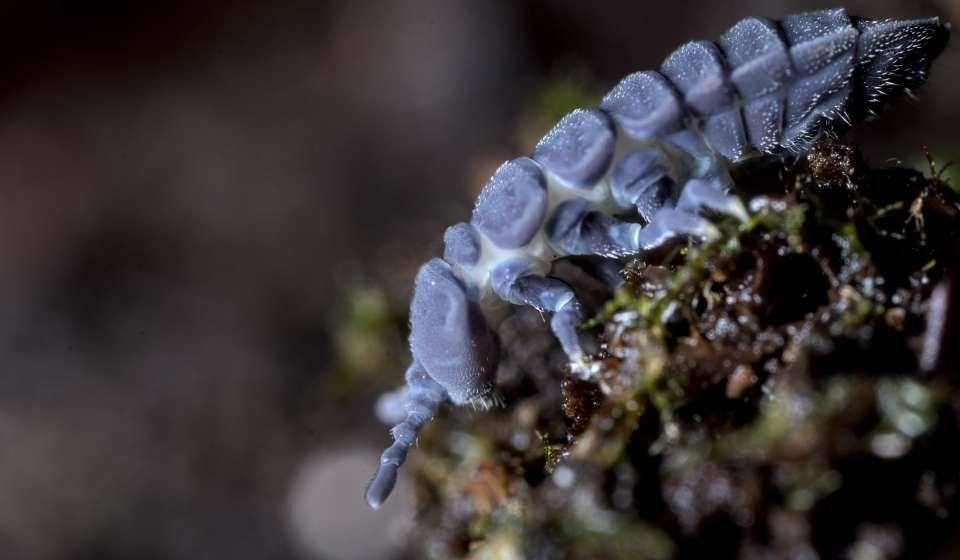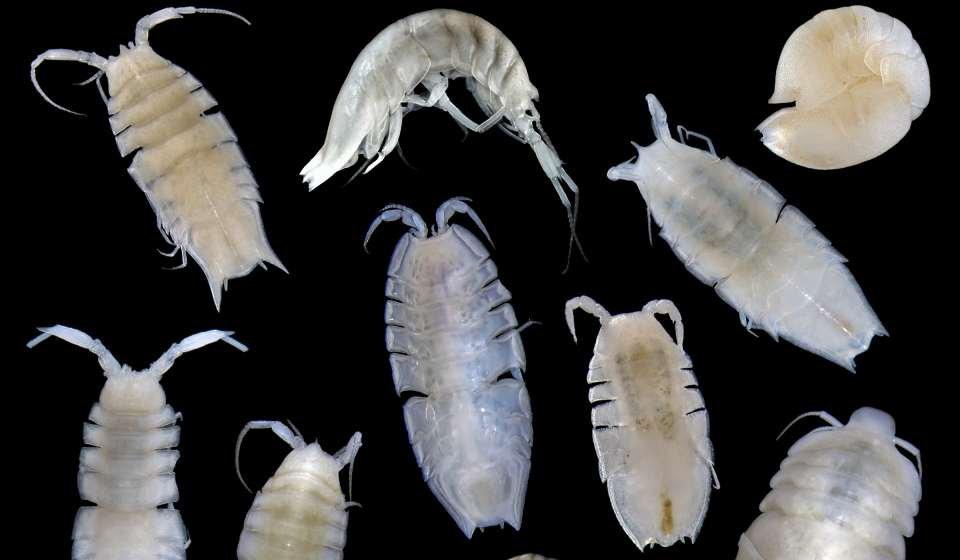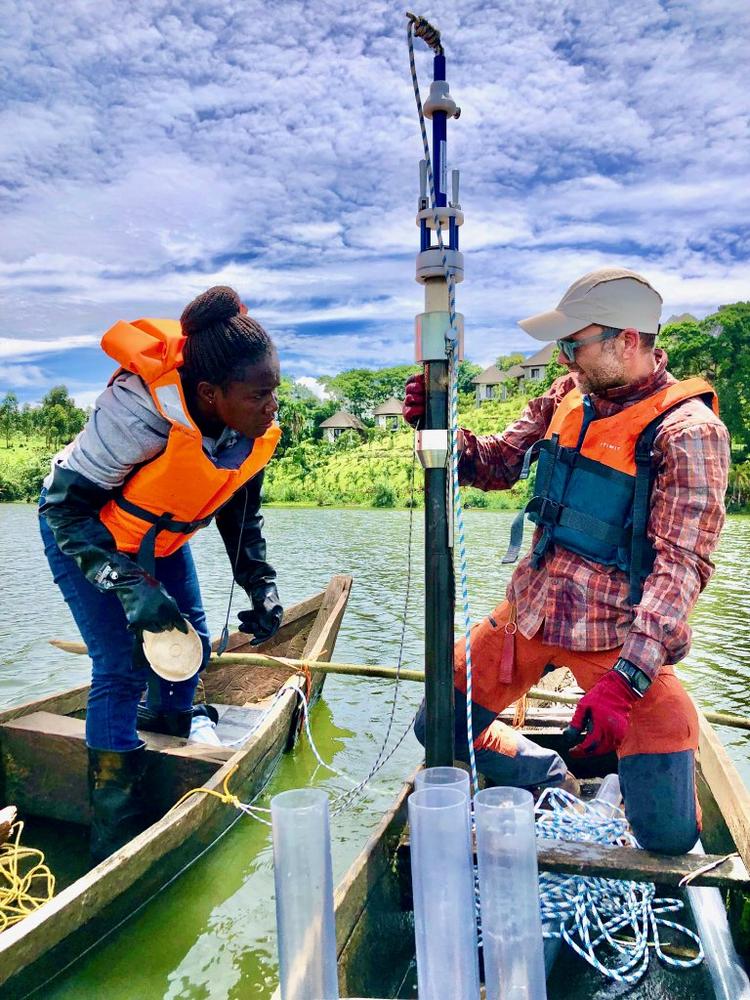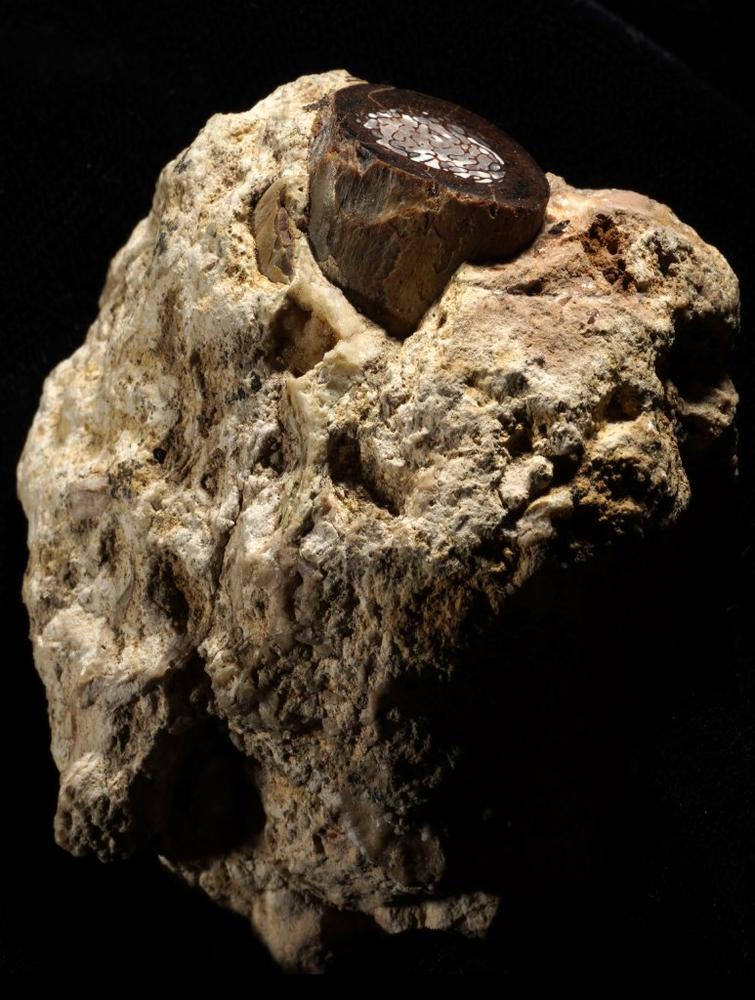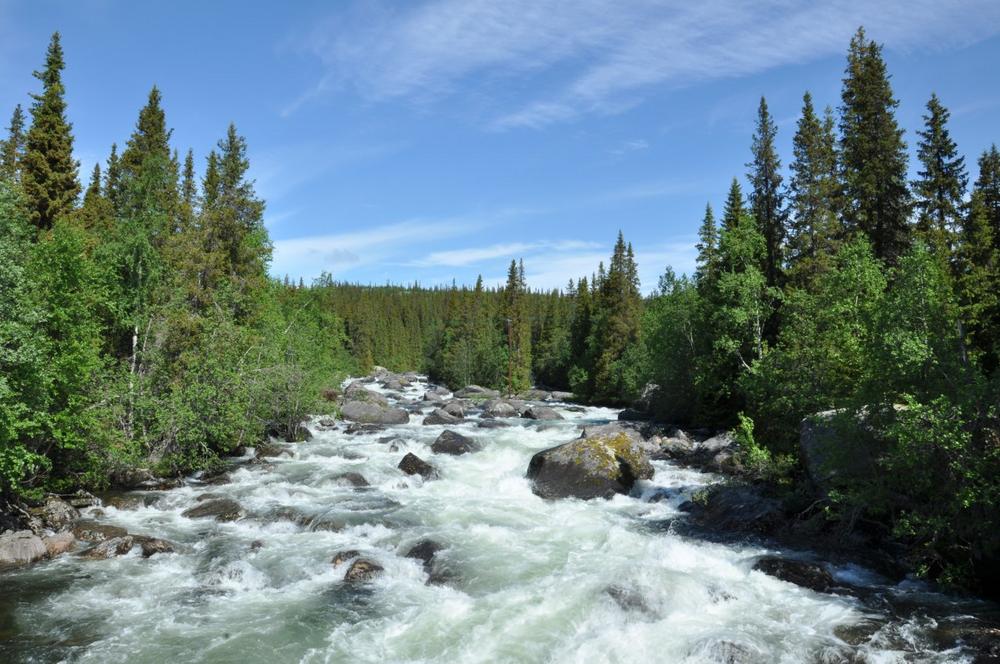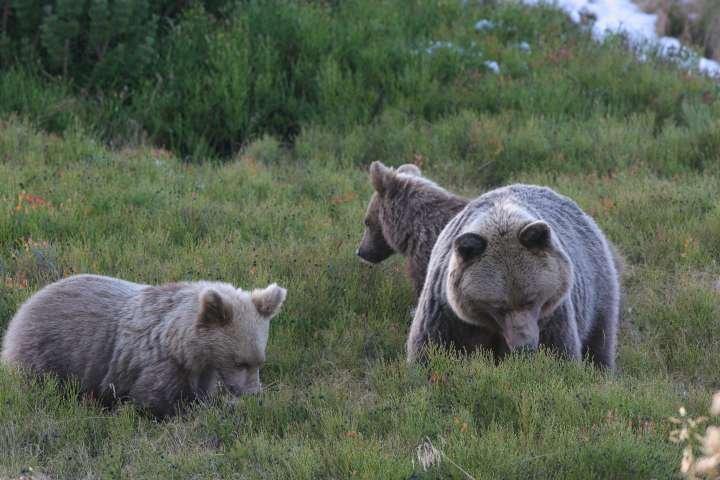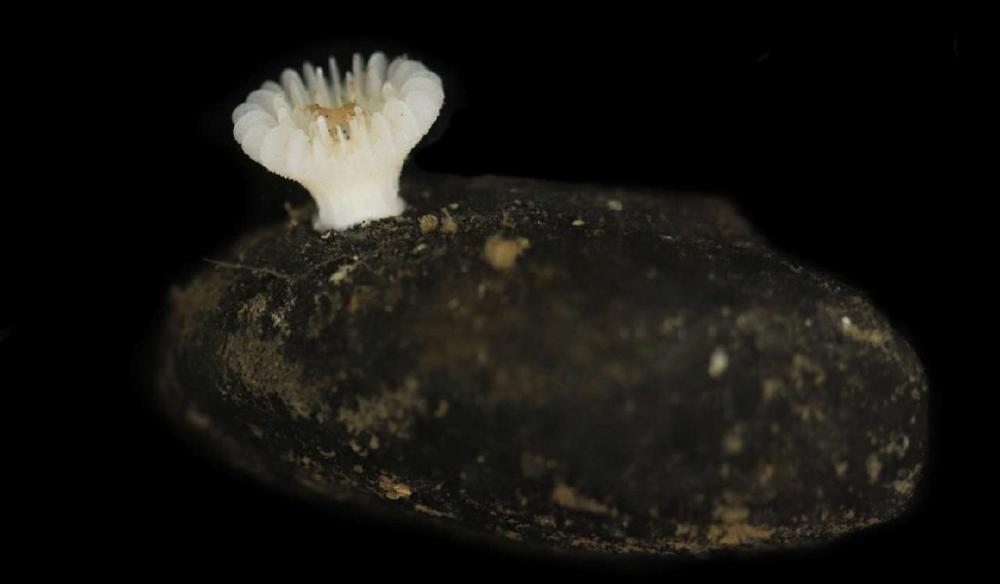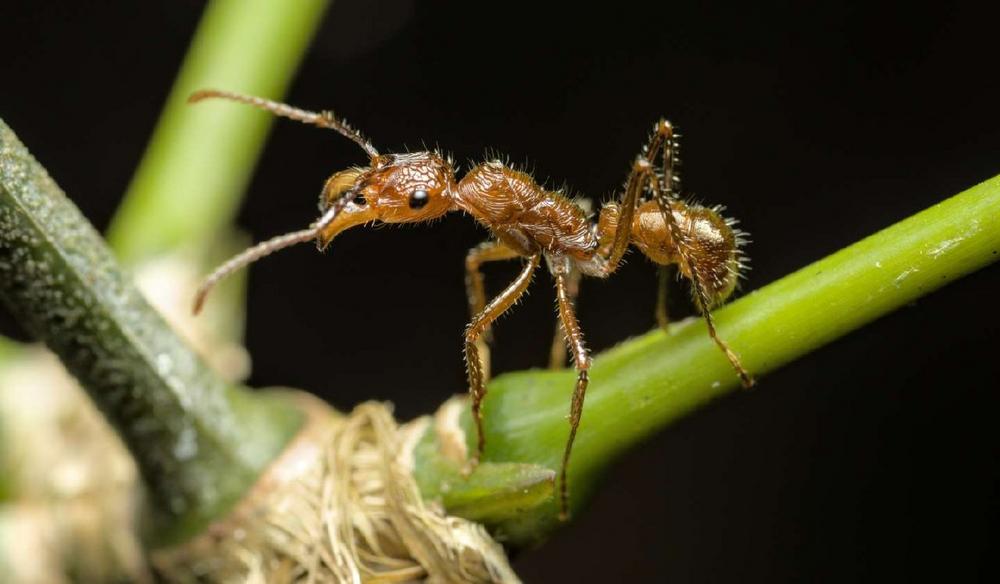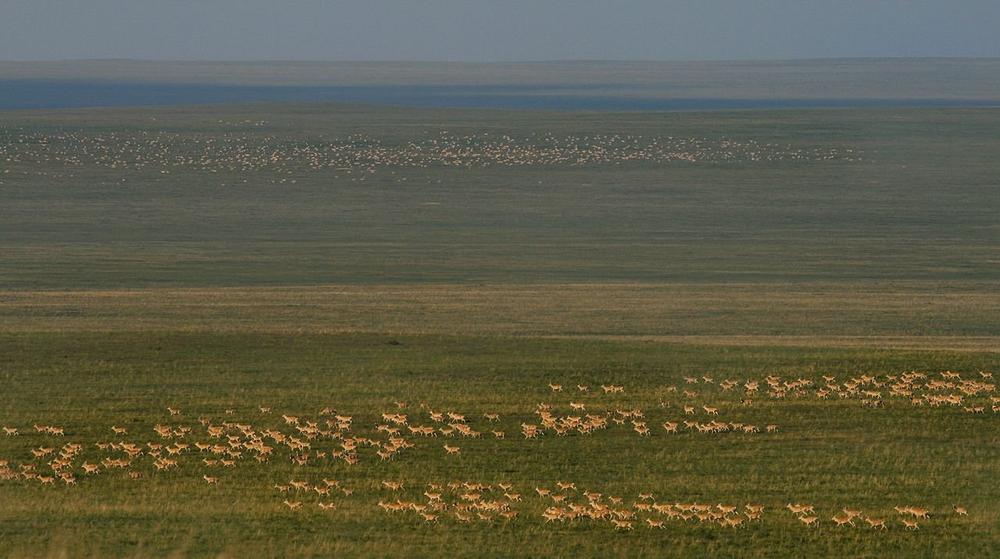-
From Brown to Green: Ground Personnel on Permanent Duty
Soil food webs conduct most of the energy in terrestrial ecosystems. Temperate and tropical forests are home to different communities of soil animals, but to date it was not clear how these differences specifically affect the structure and functioning of soil food webs in these large climate zones. In a new study, published in the journal “Nature Communications,” an international research team led by Senckenberg scientist Prof. Dr. Anton Potapov has investigated the energy flows in forest soils. The scientists identified characteristic patterns of biomass and energy distribution in small, medium, and large soil animals – from Germany to Indonesia. The results show fundamental differences in soil food webs, from…
-
More Species across Thousands of Kilometers: The Secret Life on the Deep-Sea Floor
Although the deep-sea floor represents around 70 percent of the Earth’s habitats, it is still poorly explored. Therefore, it is also unclear how animal species live in the deep sea, where they occur, and how far they spread. To find answers to these questions, Senckenberg researchers have studied tiny isopods measuring only a few millimeters in the North Pacific that were thought to have very limited mobility. In a study now published in the journal “Progress in Oceanography,” the research team concludes on the basis of morphological and genetic analyses that there is a significantly higher number of these isopod species than previously assumed, and that the range of some…
-
Type Genomics: DNA Treasure in the Collections
In a joint appeal, an international research team, including Senckenberg scientist Prof. Dr. Steffen Pauls, advocates the targeted and comprehensive genome sequencing of type specimens – the reference specimens of individual species that are kept in natural history collections. In their article, published in the scientific journal “Systematic Biology,” the researchers, led by first author Dr. Harald Letsch (University of Vienna and State Museum of Natural History Karlsruhe), emphasize the great importance of deciphering these genetic codes for biodiversity research and show how state-of-the-art technologies can be used to create “digital twins” of the often historical museum specimens. The joint initiative – supported by the three largest natural history museums…
-
Tropical Time Machine: With a Teaspoon of Mud Back into the Past
For a long time, researchers believed that the warm and humid climate of the tropics and subtropics destroyed all traces of old genetic material. A new review, led by Senckenberg scientists, now disproves this dogma. Published in the journal “Trends in Ecology & Evolution,” the study shows how ancient environmental DNA can be preserved in tropical sediments for thousands – and in some cases even up to a million – years. The authors emphasize that this method provides a revolutionary tool to better understand biodiversity loss and climate resilience as well as human history. At the same time, they issue an urgent call for close cooperation and the development of…
-
Tiny Archives: Metabolic Molecules Store the Prehistoric World
An international research team, including Senckenberg scientists, has developed a new method to investigate what the habitats of prehistoric animals and humans looked like. Their study, led by Prof. Timothy Bromage (New York University) and now published in the renowned scientific journal “Nature,” shows that fossil bones and teeth of animals preserve far more information than previously thought. The smallest traces of metabolic products are preserved in the hard tissues over millions of years. The analysis of these molecules – so-called metabolites – allows conclusions to be drawn about diet, climate, and landscapes at important sites of early human history in Africa. What did the environment of early humans look…
-
Rivers: too little protection in the protected area
Protected areas are meant to preserve endangered species and stabilize ecosystems. But for many European rivers, this protection apparently falls short. This is the finding of a new study led by Senckenberg researchers Dr. James S. Sinclair and Prof. Dr. Peter Haase, which has now been published in the scientific journal "Nature Communications." The international research team examined the condition of rivers at over 1,700 locations in ten European countries across a period of almost four decades. The result: Existing protected areas have only brought about measurable improvements in a limited subset of rivers, even over decades. To protect rivers sustainably, conservation should be performed more holistically by considering the…
-
Bears: Changing the Menu in a Warming Climate
Bears are true omnivores. This flexibility has enabled them to successfully survive in a wide variety of habitats. An international research team led by Senckenberg scientist Dr. Jörg Albrecht has now analyzed ecological and paleoecological data on seven bear species on a large scale for the first time. The results show that most bears can flexibly adapt their diet to climate and food availability, thereby shifting their ecological role. In the new study, published in the journal “Nature Communications,” the researchers propose that the changing role large omnivores play can strengthen the resilience of ecosystems to global environmental changes. Berries, roots, nuts, and grasses, but also insects, fish, and mammals…
-
Hidden gems of the abyss: New Deep-Sea Coral Found Living on Nodules Targeted for Mining
An international research team led by Senckenberg scientist Dr. Nadia Santodomingo and Dr. Guadalupe Bribiesca-Contreras from the UK’s National Oceanography Centre (NOC) have discovered a new species of deep-sea coral that lives attached to polymetallic nodules – the same mineral-rich rocks that are the focus of growing international interest for deep-seabed mining. The coral, Deltocyathus zoemetallicus – now described in a new study published in the “Zoological Journal of the Linnean Society” – was found more than 4,000 meters below the surface in the Clarion–Clipperton Zone (CCZ) of the Pacific Ocean. This is the first known hard-coral species to live directly on these nodules. The nodules grow extremely slowly – only a few…
-
Ants Worldwide: Diversity Estimated Up To Three Times Higher
Around 14,260 living and 810 fossil ant species are currently known – but this probably constitutes only a fraction of the actual number. A new study, published in the journal “Insect Systematics and Diversity,” shows how modern methods such as DNA sequencing have changed the systematics of ants. Ants colonize almost all habitats and play a central ecological role, but many regions – especially in Asia and Africa – remain poorly studied. The international team, led by Senckenberg researchers, proposes a standardized naming system for higher ant groups and emphasizes the importance of encouraging young researchers to further expand knowledge about this diverse group of animals. It all began in…
-
“Move BON”: New Global Network for the Study of Animal Movement
Move BON, a new international research network for studying animal movement, has now been officially endorsed by the overarching GEO BON network, which brings together global observations on biodiversity and makes them accessible for research and nature conservation. The new initiative, whose leadership includes researchers from the Senckenberg Biodiversity and Climate Research Center Frankfurt (SBiK-F) and the Max Planck Institute of Animal Behavior, will enable valuable animal movement data to be better integrated into biodiversity research and national and international conservation strategies in the future. Animal movement– from migrating birds, whales and gazelles to pollinators and seed dispersers – plays a central role in ecosystem connectivity, resilience, and biodiversity around…

